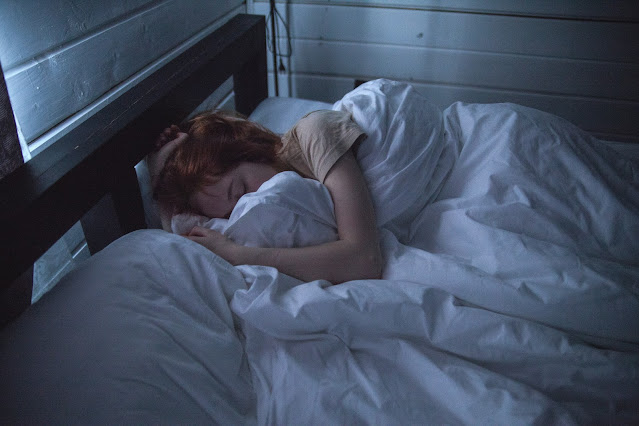In this blog post, we will explore how lack of sleep can affect your overall health and well-being and what you can do to ensure you get the rest you need. Read on to learn more about the effects of poor sleep and how to improve your sleep quality.
The importance of sleep
We all know that getting a good night's sleep is vital for our physical and mental health, but many don't realize just how essential it is. Rest is one of the most critical components of a healthy lifestyle.
Getting enough sleep helps to keep your body and mind in balance. Sleep enables your body to repair and restore itself after the day's activities and allows your brain to process information and form new memories. Studies have also shown that lack of sleep can affect your ability to make decisions, react to situations, and even your mood.
Not only is sleep necessary for maintaining physical health, but it is also vital for mental health. Poor sleep can be linked to depression, anxiety, and other mental health issues. Furthermore, inadequate sleep has been linked to an increased risk of heart disease, stroke, diabetes, and other severe medical conditions.
In short, getting enough quality sleep is essential for overall physical and mental health. Ensuring you get the sleep your body needs to function optimally is crucial.
The effects of sleep deprivation
Sleep deprivation can have a dramatic impact on your health. Studies have shown that people who don't get enough sleep are more likely to suffer from physical and mental health problems, such as depression, anxiety, poor concentration, irritability, increased stress levels, and difficulty learning new information.
Furthermore, sleep deprivation has been linked to an increased risk of diabetes, heart disease, stroke, and obesity.
When you don't get enough sleep, your body cannot restore and heal as it does when you're well-rested. This means that your immune system is weakened, and you're more prone to illness. Sleep deprivation also causes an increase in hormones like cortisol, which can lead to weight gain.
In addition to physical health issues, sleep deprivation can also affect your mental health. Lack of sleep has been associated with decreased creativity and problem-solving skills.
People who don't get enough sleep also tend to be more forgetful and have difficulty making decisions. As a result, they may need help completing everyday tasks or managing their time effectively.
Overall, sleep deprivation can have severe consequences for your physical and mental health. It is crucial to ensure you get enough quality sleep each night to stay healthy and functioning at your best.
The benefits of a good night's sleep
A good night's sleep is essential for maintaining your overall health. Sleep helps your body heal and repair itself, allowing your brain to process and store new information. A good night's sleep can also help you feel more alert and energized throughout the day and improve your focus and concentration. It can even help to reduce stress levels and improve your overall mood.
Some of the specific benefits of a good night's sleep include the following:
- Improved cognitive performance: Good sleep helps your brain to better process, store, and recall information, which can make learning and problem-solving easier.
- Reduced risk of disease: Sleep deprivation increases the risk of developing chronic illnesses like heart disease and diabetes. Getting enough quality sleep can reduce this risk.
- Improved mental health: Studies have shown that people who get enough sleep are less likely to suffer from depression and anxiety.
- Improved physical health: Regularly getting a good night's sleep helps to reduce the risk of developing physical ailments, such as headaches and joint pain.
- Increased energy levels: A good night's sleep helps your body to recharge, giving you more energy during the day.
Overall, getting enough quality sleep is essential for maintaining good physical and mental health. Not getting enough sleep can have serious consequences, so it's vital to take steps to ensure you are getting the amount of rest that you need.
Tips for getting a good night's sleep
- Stick to a consistent bedtime: Try to keep your bedtime and wake-up times the same every day, even on the weekends. This will help your body stay on a regular sleep cycle.
- Avoid caffeine and other stimulants late in the day: Caffeine is a stimulant that can interfere with your sleep. Avoid drinking coffee, energy drinks, or tea late in the day.
- Exercise regularly: Exercise can help you sleep better, so try to get some physical activity during the day. Avoid exercising too close to bedtime, though, as this can make it harder to fall asleep.
- Avoid screens before bedtime: The blue light from screens like phones, tablets, and TVs can interfere with your body's natural production of melatonin, which helps you sleep. Try to avoid using these devices for at least an hour before bedtime.
- Avoid alcohol before bedtime: Drinking alcohol before bed may help you fall asleep more quickly, but it can interfere with the quality of your sleep. Avoiding alcohol before bed may help you get better quality rest.
- Create a sleep-friendly environment: Creating a comfortable and relaxing atmosphere can help you fall asleep and stay asleep. Ensure your bedroom is dark, quiet, and free from distractions like TVs or phones.
- Avoid long daytime naps: Long daytime naps can make it harder for you to sleep at night. Try to limit naps to 30 minutes or less during the day.
- Talk to your doctor: If you're having trouble getting enough sleep, talk to your doctor. They can assess your sleep habits and recommend treatments if needed.
